AIML 2020: The 3rd IEEE International Workshop on Advances in Artificial Intelligence & Machine Learning: Addressing Risks & Concerns
Call for Papers
Artificial intelligence (AI) is finally starting to deliver real-world benefits, and early adopters in businesses and industry in several sectors are embracing the promise of AI reaping significant benefits. On the downside, like any new technology, AI presents risks, raises concerns regarding its safety and societal impact, and poses development and implementation challenges. To reap fuller potential of AI, we must satisfactorily address these shortcomings.
This 3rd IEEE International Workshop on Advances in AI and Machine Learning (AIML) aims to examine risks and concerns of AI and machine learning (ML) and showcase scientific, technical and practical advances in addressing them. The workshop will also highlight recent advances in AI and ML and their applications,cover AI strategy and policy, examine development and deployment challenges, and discuss concepts such as AI for good, Responsible AI, and Explainable AI. It is an interactive forum for AI researchers, practitioners and business executives for discussion on key issues and challengesand practices related to AI applications, and for sharing case studies and application experience.
Researchers and practitioners from all over the world, from academia, industry, and government are invited to present their work, perspectives, experiences and vision, and participate in the workshop.
Topics of interest include, but are not limited to:
- Advances in AI and machine learning, deep learning, cognitive computing, intelligent agents, chatbot
- AI strategy for business and industry
- AI applications in industry, business, healthcare, and education and training
- AI in government and legal practice
- Entertainment in the age of AI
- AI for enhancing information security and privacy
- Work in the age of AI
- Trust, resilience, privacy and security issues in AI applications
- Testing and validation of AI and ML applications
- Risks, limitations, and challenges of AI and ML
- Legal, regulatory, ethical aspects of AI (liability, etc.)
- AI: promise vs practice
- Societal implication of the rise of AI
- Human-machine co-existence and collaboration
- Intelligent, autonomous robots and cars
- Industry 4.0
- Smart society
- AI and IoT
- Case studies, experience reports, position papers and visionary perspectives
- Overview of AI activities in a region/country
- The Future of AI
AIML 2020 is sponsored by the IEEE Information Technology Special Technical Community.
Special Technical Communities (STCs) are technical, educational and professional resources on emerging topics that are outside or beyond the scope of the Computer Society’s Technical Committees. They are online communities of computing professionals who share a common technical, career, or technical interest, and which can be created around any set of ideas relevant to the members and professional colleagues of the Computer Society. Their membership is open to both members and non-members and available at no cost. Furthermore, anyone, member or not, can participate and can propose the creation of new STCs. For information about IEEE Computer Society Special Technical Communities, please visit https://www.computer.org/communities/special-technical-communities.
Workshop Chairs
San Murugesan, Director BRITE Professional Services; Editor in Chief Emeritus, IEEE CS IT Professional, Australia
Email: san1@internode.net
Yunji Liang, Northwestern Polytechnical University, P.R.China
Email: liangyunji@nwpu.edu.cn
Piyush Saxena, Direct Supply, USA
Email: piyush.saxena.phd@gmail.com
Lia Morra, Politecnico di Torino, Italy
Email: lia.morra@polito.it
Program Committee
Arindam Pal, CSIRO, Australia
Balamurugan Shanmugam, QUANTS IS &CS, India
Bhuvan Unhelkar, University of South Florida, USA
Helei Cui, Northwestern Polytechnical University, China
Jacob Biros, Chura Data in Okinawa, Japan
Juan A. Álvarez-García, University of Seville, Spain
Keng Siau, Missouri University of Science and Technology, USA
Kenichi Yoshida, Tsukuba University, Japan
Kozo Ohara, Aoyama Gakuin University, Japan
Krishnadas Nanath, Middlesex University Dubai, Dubai
Marco Conoscenti, Politecnico di Torino, Italy
Mohan K. Bavirisetty, CISCO, USA
Rajesh Subramanian, Siemens, USA
Sunil Mithas, University of South Florida, USA
Tad Gonsalves, Sophia University, Japan
Takeshi Morita, Keio University, Japan
Tania Cerquitelli, Politecnico di Torino, Italy
Thomas Deserno, Peter L. Reichertz Institute for Medical Informatics, Germany
Uttam Ghosh, Vanderbilt University, USA
Xiaolong Zheng, Institute of Automation Chinese Academy of Sciences, China

